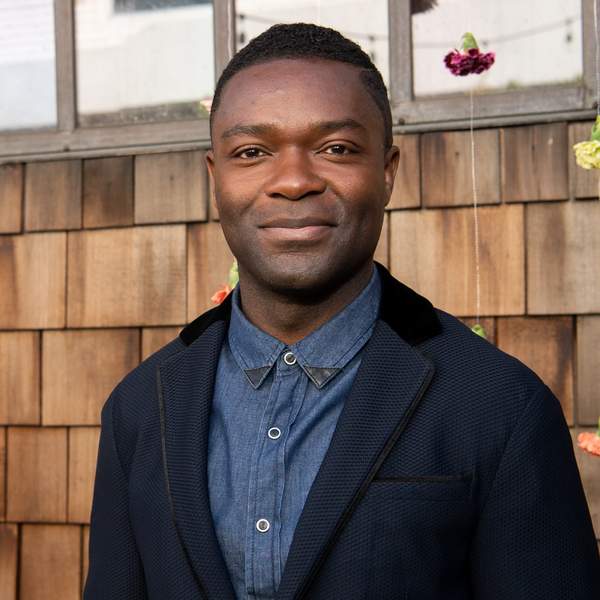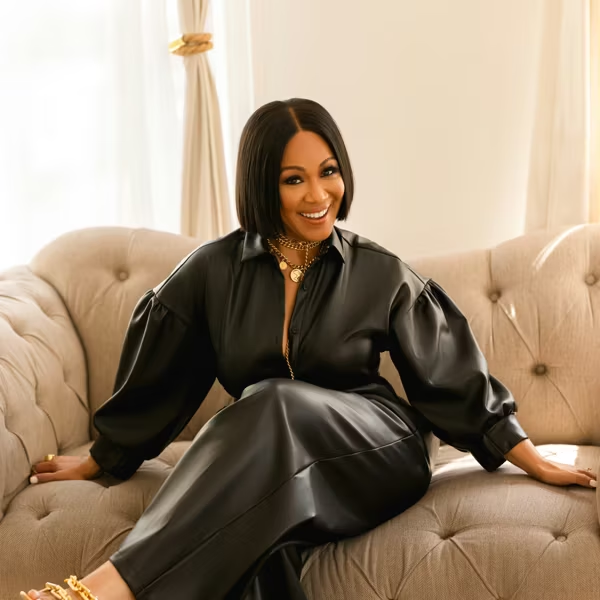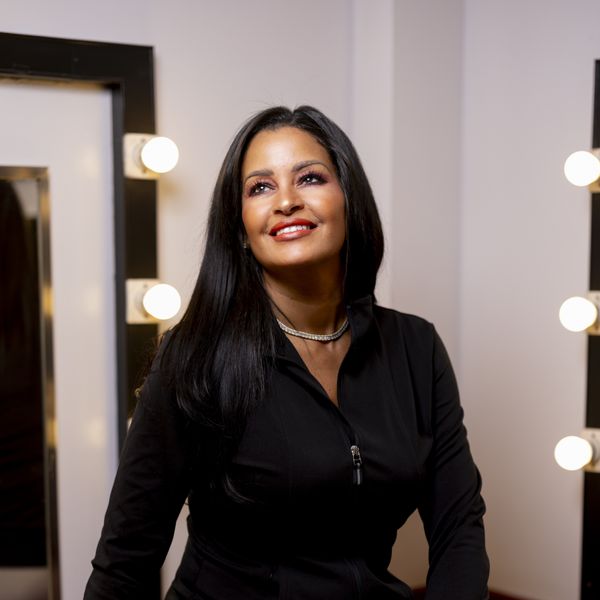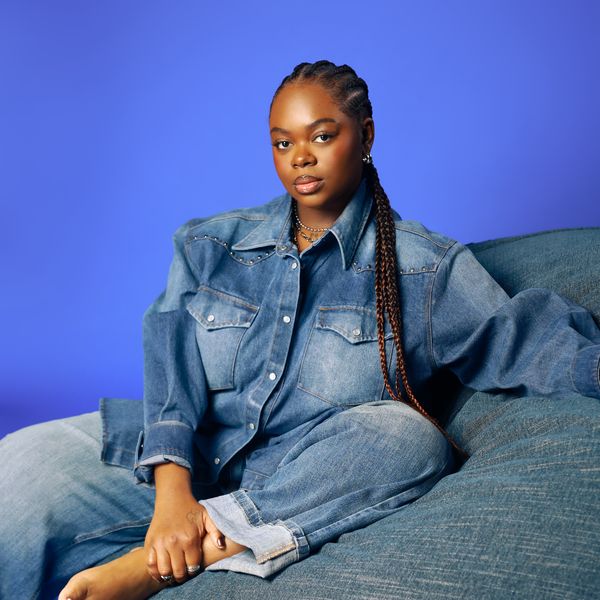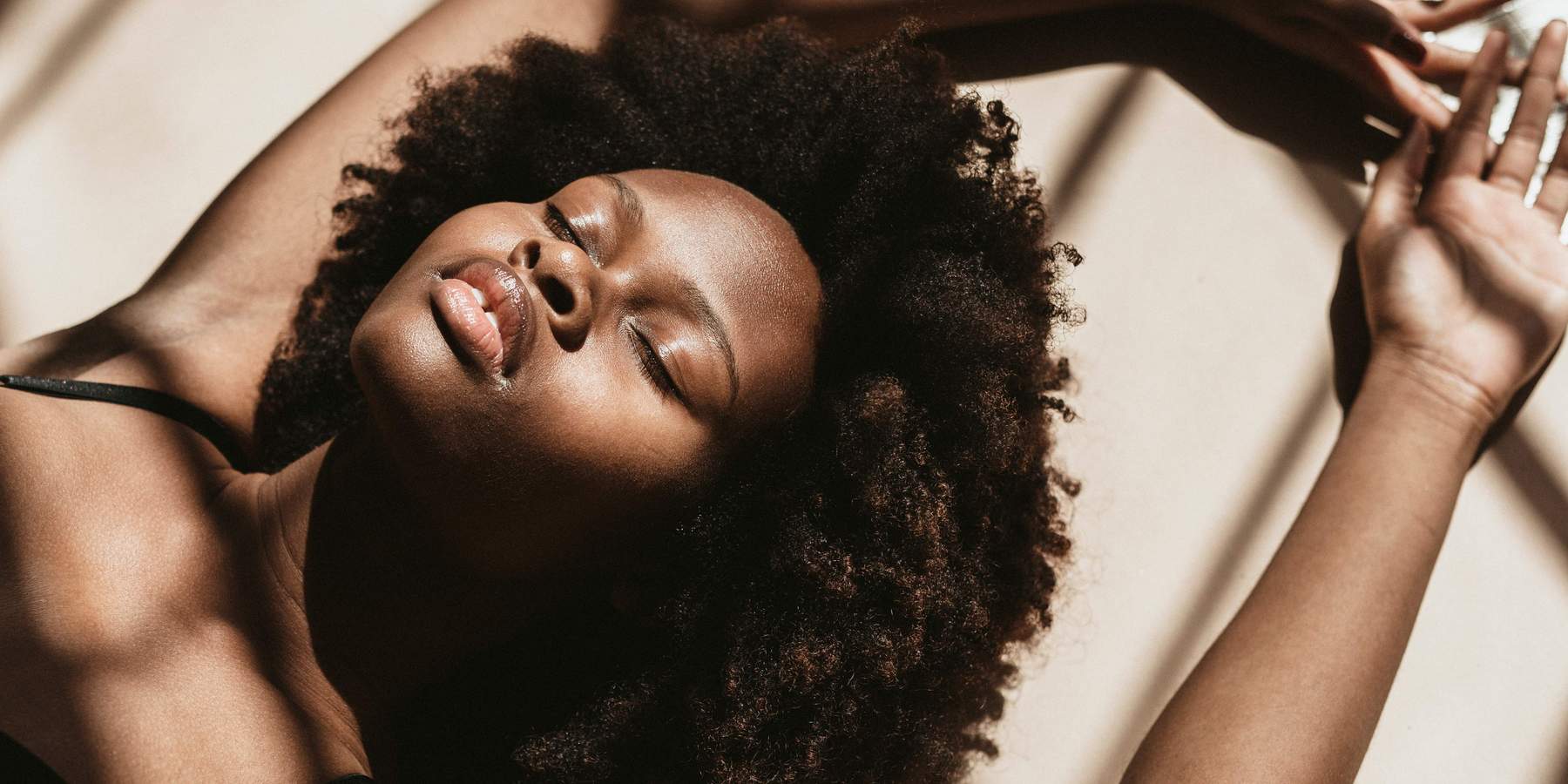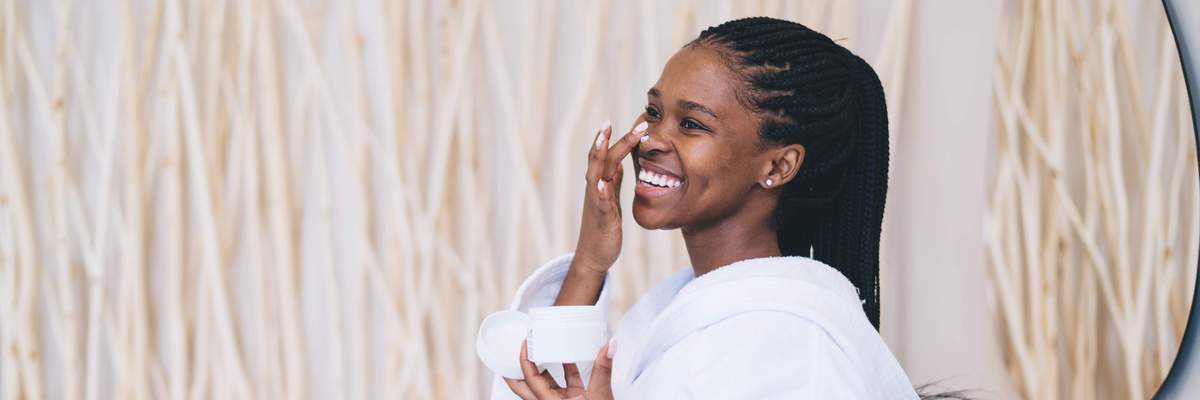As a young girl, I can vividly remember one of my favorite uncles always greeting me with: "Hey little Black child!" To which I would smartly retort, "I'm not Black, I'm brown!" He always laughed and picked me up afterward, much to my frustration, excitement, and utter confusion. Such was the struggle of a five-year-old who had yet to come to terms with the concept of semantics. But in spite of it all, what was abundantly clear was the amount of love my uncle and I shared. In the new Blumhouse thriller Don't Let Go, starring David Oyelowo and Storm Reid, that sentiment is undoubtedly the beautiful undercurrent that steers this psychologically twisted tale.
Shown through an exhilaratingly suspenseful yet understandably confusing lens, what stands out most of all in this film is the loving yet nuanced dynamics of family. This is a theme Oyelowo admits he was extremely drawn to from the beginning. "I was very just blown away by how much the script packed in. The action, the time travel, the suspense," the Selma star tells xoNecole during our midday chat. "And then in the middle of all of it, is this beautiful and unconventional relationship between an uncle and his niece. And this sort of heart-thumping question of, 'Is he going to be able to save her?' I was just really taken with it."
In Don't Let Go, the 43-year-old Nigerian English American stars as Detective Jack Radcliff, who gets a shocking phone call from his recently murdered niece Ashley (played by the "emotionally mature and very special" Reid). Working together across time, they race to solve and prevent her murder before it can happen.
In this xoChat, we talk exclusively with the Golden Globe nominee about his latest project, being a father of four, and why self-sacrifice is paramount in marriage.
xoNecole: This movie deals a lot with not taking things at face value, without giving too much away. Was there ever a point in time where you walked into a situation and it turned out to be the total opposite of what you were expecting?
David Oyelowo: Oh gosh, I mean you know the adage: don't judge a book by its cover. I think it's very apt. You know, everyday we make judgements based on what's in front of us. And I can tell you for a fact that if someone I love and lost suddenly called and told me they were calling from a different time plane--I would definitely be skeptical and that's what was fun to play in the film. You're watching this character do what I definitely would do and I think most people would do. Where we get to say, "Am I going crazy? What is this? Is someone trying to trick me, is this a prank? Oh my goodness maybe this is real. It is real. How am I going to tell everyone? They're going to think im crazy" (laughs). You know, I just loved that I got to play the reality of that instead of just the fantasy
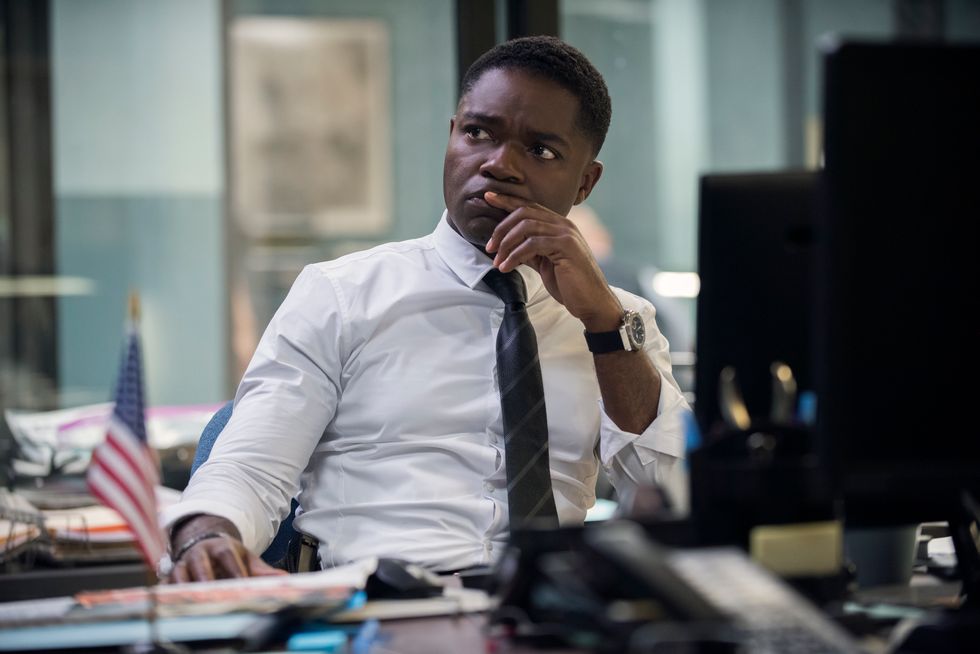
Lacey Terrell/Universal Pictures
Definitely. This movie also touches on the importance of time and choice in probably a more nuanced way than a lot of other films. And seizing the small moments in our day to day lives. Particularly in the film, Uncle Jack and his niece have these seemingly nonchalant conversations but we soon learn that we should’ve all been paying a bit more attention.
100 percent. You're alluding to a scene where she calls me and I'm busy and as you say, I don't pay her the right amount of attention. I do think the film is about not taking anything for granted. You know, treasuring those relationships. And in the case of my character, what someone would then be prepared to do once they realize how painful it is to lose someone you love and what you're prepared to do to get them back.
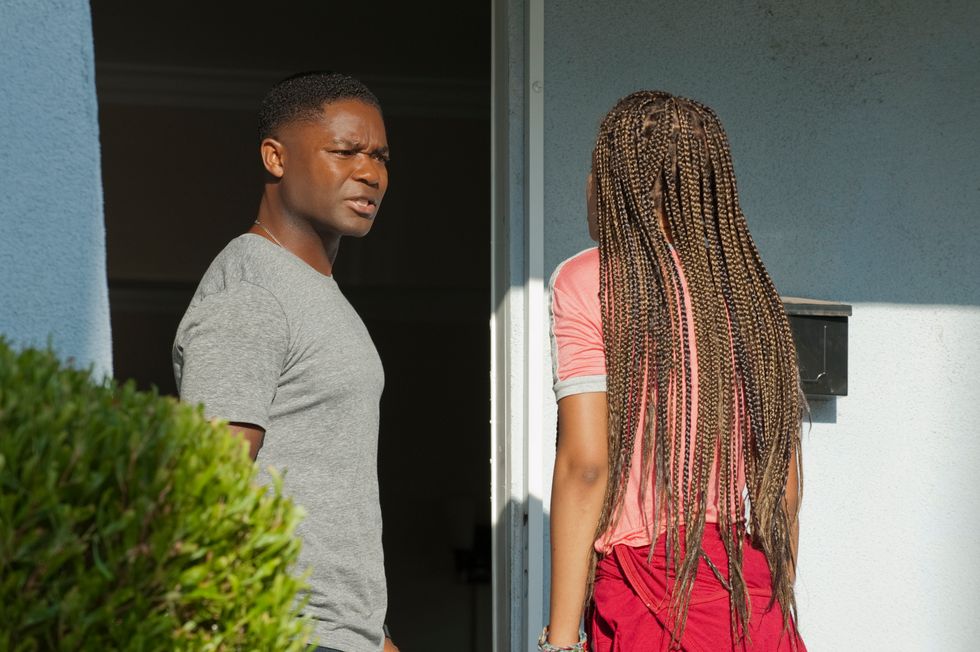
Lacey Terrell/Universal Pictures
"I do think the film is about not taking anything for granted. You know, treasuring those relationships. And in the case of my character, what someone would then be prepared to do once they realize how painful it is to lose someone you love and what you're prepared to do to get them back."
If you could go back in time and alter an important event in your life, whether good or bad, would you and why?
There were definitely some fashion decisions I made in my day probably in the 90s, particularly. My kids really enjoy making fun of me thanks to the photographic evidence. I did have a Marky Mark, Fresh Prince of Bel-Air phase. Those photographs are devastating (laughs). So yeah.
You know what? I would LOVE to see those.
You will NEVER see it (laughs). Just picture a high top and every opportunity to show off my Calvin Klein underwear possible. That's basically what that one was.
I’m disappointed but that’s actually hilarious to hear. So besides fashion choices, what would you say is the biggest difference between the David at the beginning of your career and the David now?
Oh my goodness, that's a good question. The David now very much recognizes that you have got to really just enjoy the journey and be less focused on the results. I think earlier on in my career, it was all about box office, and the reviews, and accolades, you know--tangible evidence of success. But there's no way of predicting how any project you do is going to come out. And sometimes there are mitigating factors that you just can't control. In fact, ALL the time there are mitigating factors you can't control. And I have in the past allowed those things that I can't control rob me of the joy and achievement of just getting to be in things and tell stories.
Sometimes in the moment you don't recognize that, especially [in] films and television shows. So you know, I have grown into the knowledge of: just do the work, enjoy the journey, and then just trust that that work will eventually be seen and appreciated.
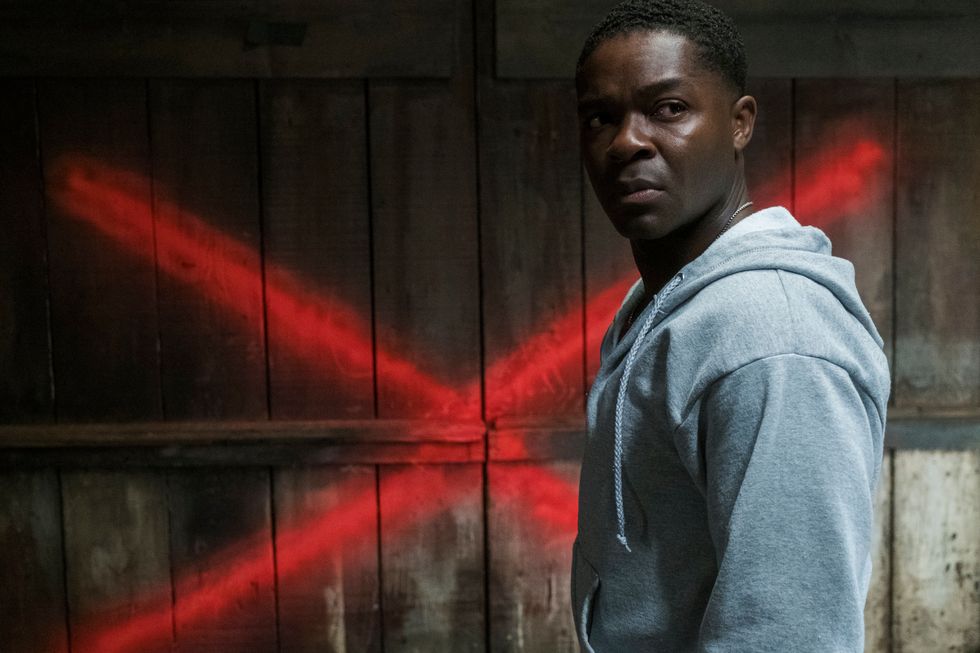
"In the past allowed those things that I can't control rob me of the joy and achievement of just getting to be in things and tell stories... Sometimes in the moment you don't recognize that. So, I have grown into the knowledge of: just do the work, enjoy the journey, and then just trust that that work will eventually be seen and appreciated."
I want to switch gears a bit now. There's often a lot of talk about millennials in particular: what we do right, what we do wrong, what we don't know, what we think we know...
Mm-hmm. Right.
So I’m curious, what do you think millennials get wrong or right about their perception of love and family?
I think there's a notion that independence is the absolute epitome of self-realization. I actually feel people are designed to be dependent on each other. And I think this striving for independence is why you have so many lonely people. It's why "commitment" has become almost a swear word, if you will. Because there is this notion with the younger people--and I don't know what we've done in terms of society--but there's this notion that empowerment, true femininity and masculinity is tied to being able to be self-reliant entirely.
And anyone who's lived on a deserted island for a week will tell you: I just don't think we're designed to be alone (laughs). I think we're designed to rely upon each other. I think we're designed to be vulnerable with each other. And I truly do believe that we are, we are designed to love in a way that is not just about what I can take, whether it be sexually or financially or, or emotionally. But to give, I think giving is the height of who we are. And that is also something that is in short supply these days.
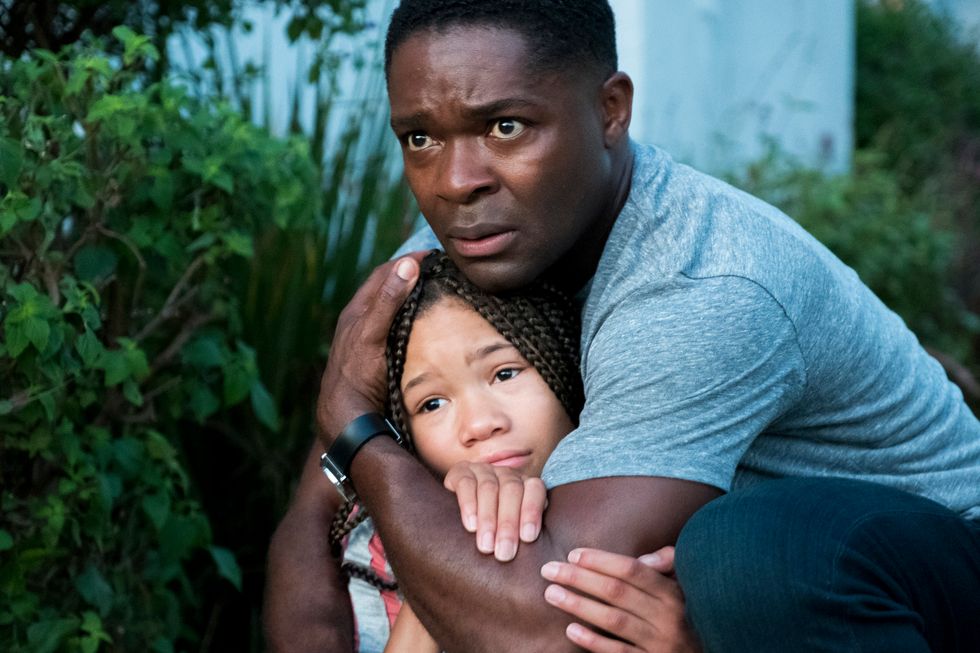
Lacey Terrell/Universal Pictures
"There's a notion that independence is the absolute epitome of self-realization. I actually feel people are designed to be dependent on each other. And I think this striving for independence is why you have so many lonely people. It's why 'commitment' has become almost a swear word if you will... There's this notion that empowerment, true femininity and masculinity is tied to being able to be self-reliant entirely."
What’s the biggest misconception you feel people in general have when it comes to the conversation of love, marriage, and family?
Well, I think something missing in terms of both love and family is just how important family is. There are real challenges to the--and I don't really like calling it an institution--but to the beauty of marriage. I've been married 21 years next month and my parents were married before my mom passed away, for all of their adult lives. And I know there are reasons why people end up breaking up and all of that, but I feel like in society now, I don't know that we work as hard as we should to stay together. I think that there's a misconception that love should always feel like butterflies and be romantic. But there's an element to love that is work. There is an element that is pure self-sacrifice without the desire to get anything back in return.
And if two people are doing that to each other: then you are loving and being loved at the same time. So, I think that the sheer amount of work that needs to go into keeping your family together and keeping a marriage together is something that we're losing as a skill.
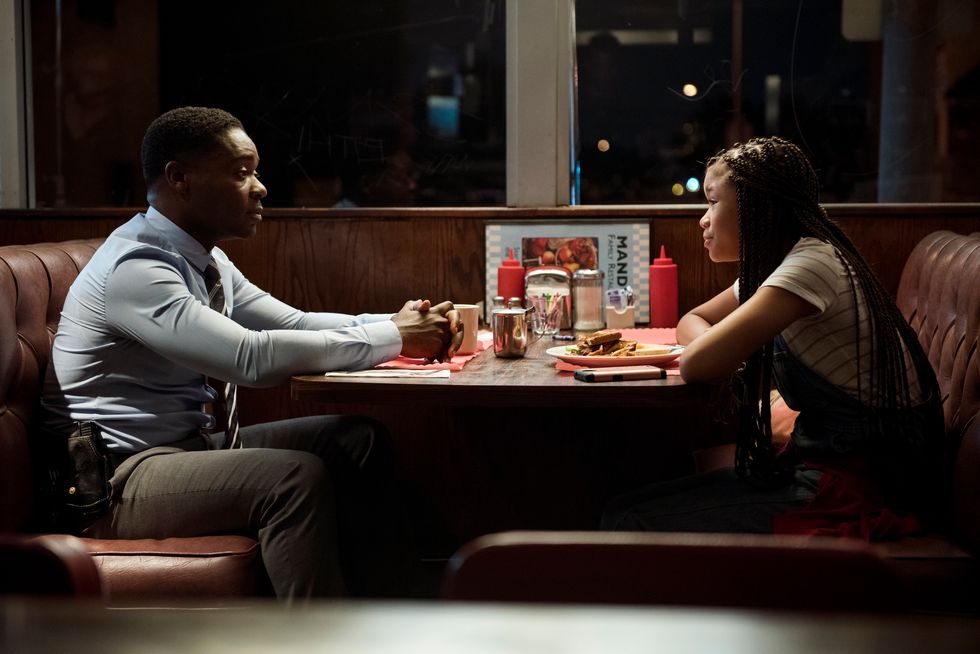
Lacey Terrell/Universal Pictures
"I think that there's a misconception that love should always feel like butterflies and be romantic. But there's an element to love that is work. There is an element that is pure self-sacrifice without the desire to get anything back in return. And if two people are doing that to each other: then you are loving and being loved at the same time."
I know you yourself are married as well. When did you know that you were ready to put in that work to give and receive love? You know, where you knew that this was something you were fully capable of doing.
My dad didn't get married until he was quite a bit older. He was 40 when he got married. And my dad's my hero. So, I just assumed that, you don't get married to you're later in life. But then at the age of 19, I met this amazing girl who was 17, and we became friends. And before I knew it--I had fallen in love. And I was shocked by this because I always had in my head that being with someone for life is something that wasn't going to happen until later. I don't know, there was just something about her.
But the moment I realized I was in love and couldn't do without the lady I'm now married to, was when I literally couldn't picture my life without her in it. And that was the moment beyond which I thought, 'Okay, I guess this is my forever person.' It was that revelation that made me feel brave enough to jump in.
That’s beautiful. And so what do you know now about love or family that you didn't know before?
What I know now about love and family-- I'll relate this to my kids. If you have more than one child, what I know about family and what I know about children is that they are all different. You can't apply all of the same parenting methods to one child as you do another. You have to get to know them. I think it's good to have core values, but you have to adapt to your child's needs. And I have three sons and a girl; each and every one of them are different and it has been imperative to respond to who they are as people as opposed to a blanket approach to all of them.
Last question before you go: at this point in your life, what are you most grateful for?
I am most grateful for my faith. You know, I'm a Christian and that has been a bedrock for me since I was 16. And it's been such a relief and a release to know that I am loved by God. That my salvation is secure in Christ and that in this life--I don't have to strive because I already have the greatest reward anyone could ever have: which is God's love. That's just something that releases me from so much of the things I think I would have been preoccupied with if I didn't have that revelation.
You can catch David in Don't Let Go, in theaters everywhere now. And be sure to keep up with him by following him on Instagram.
Featured image by Getty Images



